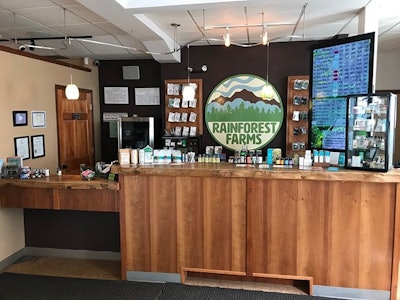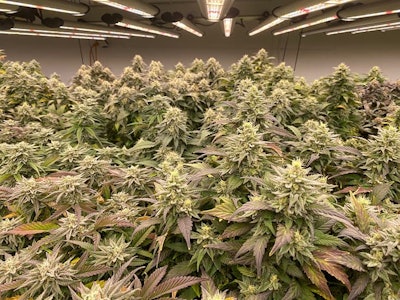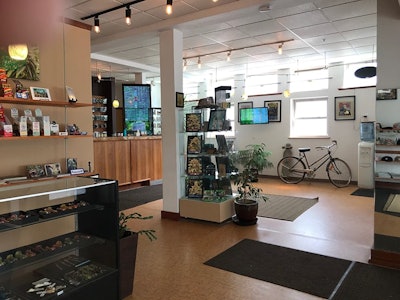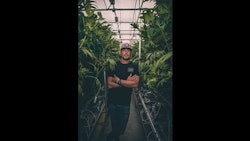
When brothers James and Giono Barrett transformed a former coffee shop in Juneau, Alaska, into a cannabis dispensary, they aspired to one day create an on-site consumption space for its customers, once Alaska finalized its regulations.
Now, their dream is becoming reality as their dispensary, Rainforest Farms, is the first to apply for an on-site consumption license at the local level.
James and Giono advocated for adult-use legalization in Alaska in 2014 and 2015, when James worked in state government and Giono was a licensed medical cannabis grower. When the state legalized in 2015, the brothers were the first to launch a cultivation operation and retail store in Juneau.
“It’s been a fun ride,” James Barrett said. “We’re at the point right now where Alaska is about to kick off … on-site consumption, … so that’s our next step.”
It’s a two-tier licensing process, he added, and Rainforest Farms must first get local approval before pursuing an on-site consumption license at the state level. The company has a hearing on Aug. 18 with the local planning commission, which will decide whether to alter Rainforest Farms’ conditional-use permit to add on-site consumption.

Juneau has strict ordinances on smoking, Barrett said, so the company’s on-site consumption plan includes only edibles.
“They kind of threw cannabis into tobacco, so it falls into the smoking ban,” he said. “If you wanted to do smoking on-site consumption in Juneau, you’d have to have a standalone building and be pretty far away from other people. … We’re going to do more European café-style. You can get some edibles, coffee, espresso [and] maybe a sandwich or something like that.”
Alaska’s regulations stipulate that a dispensary’s on-site consumption space must be separate from the retail store, so if the company’s plans are approved, the Barretts will split Rainforest Farms’ retail space in half, with one side dedicated to the retail store and the other transformed into the consumption area.
State rules also require dispensaries to serve their products to customers in specific doses, Barrett added, so if a Rainforest Farms customer purchases a 50-mg package of cannabis edibles, for example, staff will serve 5 mg of it and hold on to the rest until the customer leaves.
“That’s a way to show the state and the city that we’re not going to overserve someone,” Barrett said. “10 mg is the most that they can consume [on-site], which seems pretty low, but we deal with a lot of tourists, a lot of people who are not familiar with cannabis. … It’s a lot of … first-timers or people who haven’t done it since the ’70s, … [so] it’s kind of a starting point.”
Eventually, the Barretts would like to add a bar to Rainforest Farms’ on-site consumption space, where the dispensary can use cannabis oil or THC syrups to make cocktails.

Overall, Barrett is just excited to provide a safe and legal space for cannabis consumers to enjoy Rainforest Farms’ products.
“We serve thousands and thousands of tourists every summer, and we sell a lot of edibles,” he said. “They don’t bring it back on the [cruise] ship. They probably consume it outside in public. Our industry wants to be responsible, so we just think on-site consumption would be a place to do that.”
An on-site consumption space would be a nice addition to the city block that Rainforest Farms calls home, Barrett added, which already houses three dispensaries, two breweries, a distillery and more than a dozen restaurants.
“It’s cool because if you were to take a flight into Juneau and you landed and took a walk to one of the local hotels, you could go to dinner, check out the distillery, have a beer, then get some fish or some seafood, [and] stop at the dispensary and have an edible,” he said.

























